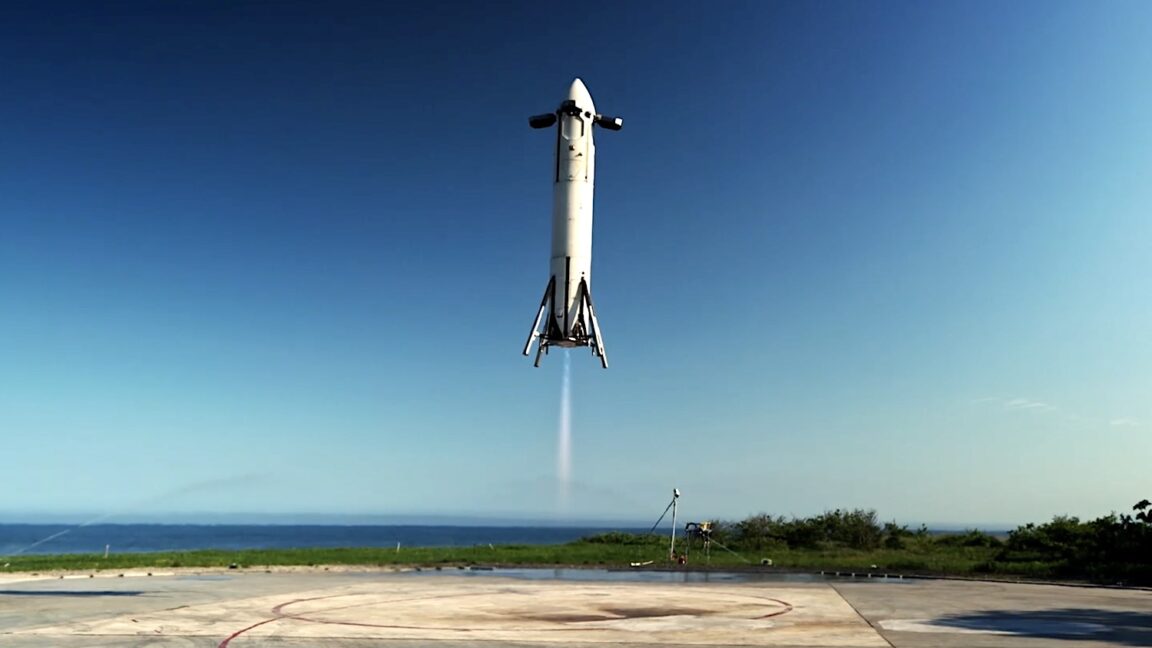The company has not disclosed how much it is spending on rocket development. Honda’s hopper is smaller than similar prototype boosters SpaceX has used for vertical landing demos, so engineers will have to scale up the design to create a viable launch vehicle.
But Tuesday’s test catapulted Honda into an exclusive club of companies that have flown reusable rocket hoppers with an eye toward orbital flight, including SpaceX, Blue Origin, and a handful of Chinese startups. Meanwhile, European and Japanese space agencies have funded a pair of reusable rocket hoppers named Themis and Callisto. Neither rocket has ever flown, after delays of several years.
Honda’s experimental rocket lifts off from a test site in Taiki, a community in northern Japan.
Before Honda’s leadership green-lit the rocket project in 2019, a group of the company’s younger engineers proposed applying the company’s expertise in combustion and control technologies toward a launch vehicle. Honda officials believe the carmaker “has the potential to contribute more to people’s daily lives by launching satellites with its own rockets.”
The company suggested in its press release Tuesday that a Honda-built rocket might launch Earth observation satellites to monitor global warming and extreme weather, and satellite constellations for wide-area communications. Specifically, the company noted the importance of satellite communications to enabling connected features in cars, airplanes, and other Honda products.
“In this market environment, Honda has chosen to take on the technological challenge of developing reusable rockets by utilizing Honda technologies amassed in the development of various products and automated driving systems, based on a belief that reusable rockets will contribute to achieving sustainable transportation,” Honda said.
Toyota, Japan’s largest car company, also has a stake in the launch business. Interstellar Technologies, a Japanese space startup, announced a $44 million investment from Toyota in January. The two firms said they were establishing an alliance to draw on Toyota’s formula for automobile manufacturing to set up a factory for mass-producing orbital-class rockets. Interstellar has launched a handful of sounding rockets but hasn’t yet built an orbital launcher.
Japan’s primary rocket builder, Mitsubishi Heavy Industries, is another titan of Japanese industry, but it has never launched more than six space missions in a single year. MHI’s newest rocket, the H3, debuted in 2023 but is fully expendable.
The second-biggest Japanese automaker, Honda, is now making its own play. Car companies aren’t accustomed to making vehicles that can only be used once.

